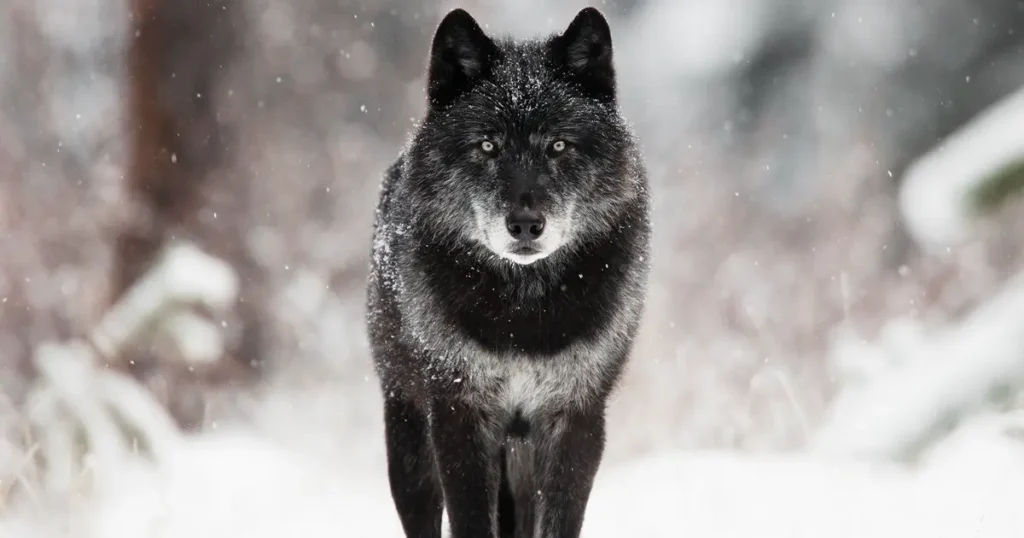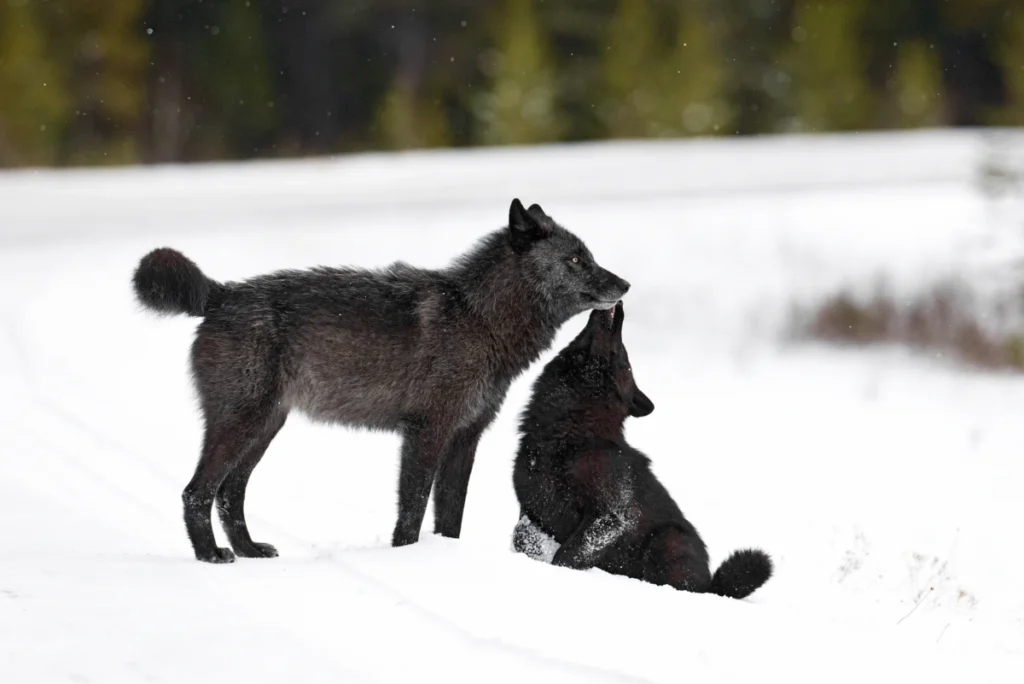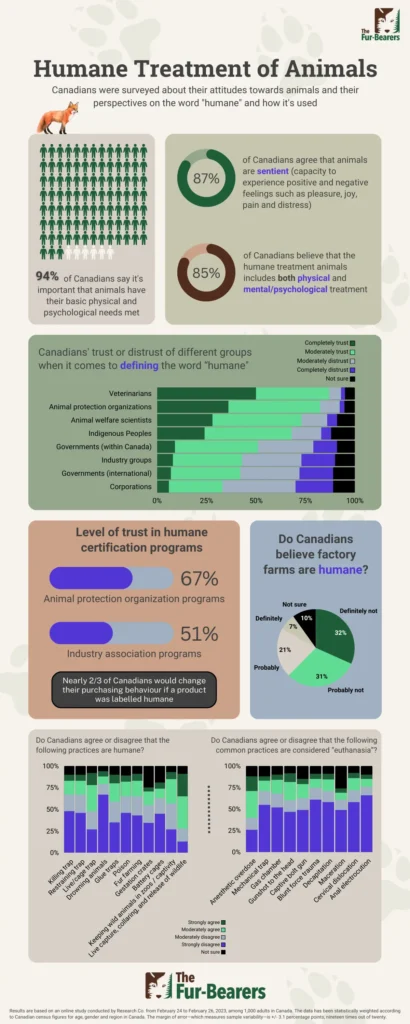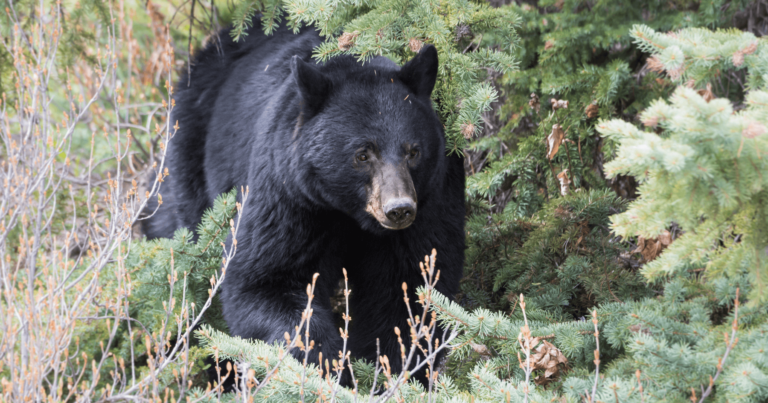
The Government of British Columbia has released photos of the wolf cull to environmental charity Pacific Wild. (Click here to read Pacific Wild’s press release and view the photos. Warning, the photos are graphic). The photos show the bodies of wolves killed by government contractors, confirming what many have been saying for years: BC’s predator reduction program is deeply unethical and inhumane.
British Columbia is killing hundreds of wolves every winter as part of its caribou recovery program, where government-hired contractors capture, track, and shoot these iconic, innocent animals from helicopters. The photos of these killings demonstrate that ‘killing for conservation’ is a broken, unethical, and outdated approach to wildlife management.
Killing one species to save another is a facet of an anthropocentric ideology (i.e. humans consider themselves superior to nature) embedded in BC’s provincial wildlife management framework. This prevailing attitude views wild animals as mere numbers on spreadsheets needing to be erased, while destructive human practices like logging and industrial development continue business-as-usual in caribou habitat, leaving both wolves and caribou the victims of a hierarchical system that places industry above ungulates, and carnivores at the bottom.
There needs to be a different approach to wildlife conservation that centers around ethics and rejects the killing of wild animals; the province’s wolf cull is an example of wildlife policy that centers around killing and rejects ethics.
Compassionate Conservation

A shift toward principles of compassionate conservation is required in the 21st century, an approach that views wild animals as individuals, emphasizes animal welfare, and extends compassion to all sentient beings. Predominant conservation and wildlife management frameworks focus almost exclusively on species population levels. Under these approaches, ethical considerations toward individual animals rarely factor in decision-making: animals are often killed using inhumane methods, because these animals are not considered individuals or sentient beings that have capacities to feel pain, joy, and loss. They’re seen as obstacles to be removed.
For the wolf cull in British Columbia, these methods include shooting wolves from helicopters. In Alberta, it’s poison. British Columbia’s annual slaughter of wolves involves deeply unethical methods such as Judas Wolves and the tracking of wolf pups, where these young wolves are collared and their entire families shot, orphaning the pups only to track and kill them later.
A starting point for the Government of British Columbia to move away from its ‘killing for conservation’ approach is to adopt the international principles for ethical wildlife control into its wildlife management framework. A fundamental principle of this approach is to modify human practices and change human behaviour first. Already the province fails this task under its caribou recovery program, as critical caribou habitat is not only being impacted by human activity, but negative impacts to habitat have even been subsidized by the province.
These principles provide an evidence-based framework that incorporates ethical considerations into decision-making around wildlife management. An approach like this is also aligned with the values of Canadians, who care about animals and want to see animals treated well.
Canadians value the humane treatment of animals
A recent survey commissioned by The Fur-Bearers showed that 94% of Canadians say that it’s important to them that animals have their basic physical and psychological needs met, 87% of Canadians believe that animals are sentient, and 85% of Canadians believe that the humane treatment of animals involves both physical and mental/psychological treatment. Actions such as chasing and shooting wolves from helicopters, orphaning young wolves, and destroying family units in the remote wilderness are wholly inconsistent with the values of Canadians today. This isn’t conservation, this is killing. A new approach is needed, and this begins with the end of British Columbia’s annual slaughter of wolves.
The British Columbia wolf cull is unethical and inhumane. These new photos are evidence of this, despite the province stating these killings are humane. It’s time to end the wolf cull and move towards a compassionate conservation model that respects all wild animals and places ethics first.
Take Action!
Take action today by contacting your MLA calling for an end to the wolf cull. Click here to find your MLA’s contact information. Always be polite and include your contact information so your MLA knows you live in their riding. For residents outside of BC, you can send an email to the premier’s office at premier@gov.bc.ca. Some points you can raise in your email:
- Science has and continues to show that industrial activity and habitat destruction are the primary causes of caribou decline.
- Killing wolves will not save the caribou populations, particularly while logging and other industrial activity in BC’s forests is left unaddressed, as these have significant, negative impacts on ecosystems.
- Aerial gunning, trapping and other methods used to kill wolves and cougars as part of this cull are inhumane.
- Only by following the science to restore habitat in the best interests of the ecosystem and all wildlife, not industry, will caribou populations and their ranges be protected.
- The majority of respondents in the BC government’s 2022 engagement survey stated they are opposed to predator reduction for caribou recovery.
It’s time to end BC’s wolf cull and seriously tackle the human-caused destruction that results in caribou declines.

